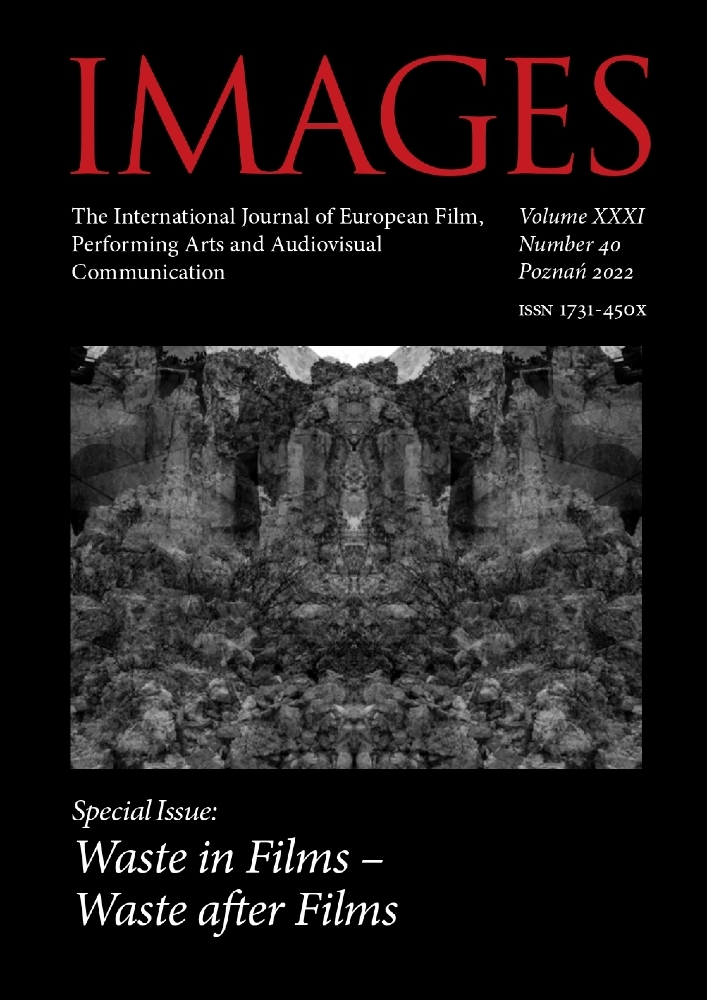Abstrakt
This paper analyses the movie Fight Club (1999) from the philosophical point of view. We reflect on the split personality of the protagonist, showing how the former represents the subject of the modern society, who, unable to find completion in ceaseless consumerism, embarks upon a personal journey towards the annihilation of every value of his world. This process of annihilation, which at first takes the form of a closed group of people, evolves into an expansive way of annihilation. The latter symbolizes modern society’s evolved subject’s will to destroy the foundations of capitalist society.
Bibliografia
Barentsen G., Romantic Metasubjectivity Through Schelling and Jung: Rethinking the Romantic Subject, London 2020
Bennett R., The Death of Sisyphus: Existentialist Literature and the Cultural Logic of Chuck Palahniuk's "Fight Club", "Stirrings Still" 2005, vol. 2, no. 2, pp. 65-80
Brown W., Fleming D.H., Deterritorialisation and Schizoanalysis in David Fincher's Fight Club, "Deleuze Studies" 2011, vol. 5, no. 2, pp. 275-299 https://doi.org/10.3366/dls.2011.0021 DOI: https://doi.org/10.3366/dls.2011.0021
Casado da Rocha A., Disease and Community in Chuck Palahniuk's Early Fiction, "Stirrings Still" 2005, vol. 2, no. 2, pp. 105-115
Collado-Rodríguez F., Chuck Palahniuk: Fight Club, Invisible Monsters, Choke, New Jersey 2013
Diken B., Lausten C.B., Enjoy Your Fight! Fight Club as a Symptom of the Network Society, "Cultural Values" 2002, vol. 6, no. 4, pp. 349-367, https://doi.org/10.1080/1362517022000047307 DOI: https://doi.org/10.1080/1362517022000047307
Fenichel T., Schelling, Freud, and the Philosophical Foundations of Psychoanalysis, London 2018 https://doi.org/10.4324/9781351180153 DOI: https://doi.org/10.4324/9781351180153
Foucault M., Theatrum Philosophicum, "Critique" 1970, vol. 26, no. 282, pp. 885-908 https://doi.org/10.35765/forphil.2021.2601.12 DOI: https://doi.org/10.35765/forphil.2021.2601.12
Freydberg B., Schelling's Dialogical Freedom Essay, New York 2008
Greenwood K.,"You are not a beautiful and unique snowflake": Fighting and Ideology in Fight Club, "M/C Journal" 2003, vol. 6, no. 1, https://doi.org/10.5204/mcj.2146 DOI: https://doi.org/10.5204/mcj.2146
Heidegger M., Schelling's Treatise on the Essence of the Human Freedom, Ohio 1985
Hock Soon Ng A., Muscular Existentialism in Chuck Palahniuk's "Fight Club", "Stirrings Still" 2005, vol. 2, no. 2, pp. 116-138
Kavadlo J., The Fiction of Self-destruction: Chuck Palahniuk, Closet Moralist, "Stirrings Still" 2005, vol. 2, no. 2, pp. 3-24
Kennett P., Fight Club and the Dangers of Oedipal Obsession, "Stirrings Still" 2005, vol. 2, no. 2, pp. 48-64 Kerr C., A Review of "Haunted", "Stirrings Still" 2005, vol. 2, no. 2, pp. 139-142
Kornbluh H., Marxist Film Theory and Fight Club, London 2019 https://doi.org/10.5040/9781501347337 DOI: https://doi.org/10.5040/9781501347337
Kosch M., Freedom and Reason in Kant, Schelling, and Kierkegaard, Oxford 2012, DOI 10.1093/0199289115.001.0001
Mathews P., Diagnosing Chuck Palahniuk's "Fight Club", "Stirrings Still" 2005, vol. 2, no. 2, pp. 81-104
McGrath S.J., The Dark Ground of Spirit, London 2012 https://doi.org/10.4324/9780203134399 DOI: https://doi.org/10.4324/9780203134399
Sartain J.A., "Even the Mona Lisa's Falling Apart": The Cultural Assimilation of Scientific Epistemologies in Palahniuk's Fiction, "Stirrings Still" 2005, vol. 2, no. 2, pp. 25-47
Schelling F., Philosophical Investigations into the Essence of Human Freedom, New York 2006
Vanden Auweele D., Kant and Schelling on the Ground of Evil, "International Journal for Philosophy of Religion" 2019, vol. 85, no. 2, pp. 235-253, https://doi.org/10.1007/s11153-019-09701-6 DOI: https://doi.org/10.1007/s11153-019-09701-6
Wartenberg Th. (ed.), Fight Club, London 2012 https://doi.org/10.4324/9780203808009 DOI: https://doi.org/10.4324/9780203808009
Žižek S., El club de la lucha: ¿verdadera o falsa transgresión? "Archipiélago" 2002, vol. 53, pp. 47-51
Žižek S., The Indivisible Remainder: an Essay on Schelling and Related Matters, London 2007
Licencja
Prawa autorskie (c) 2023 Georgios Karakasis, Jonathan Lavilla de Lera

Utwór dostępny jest na licencji Creative Commons Uznanie autorstwa 4.0 Międzynarodowe.

